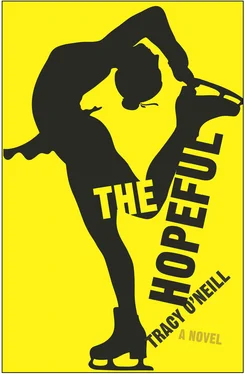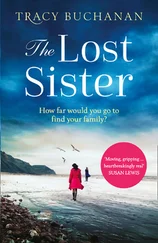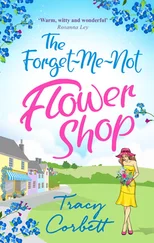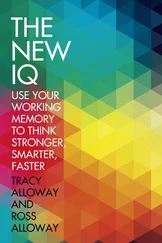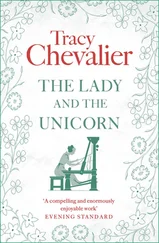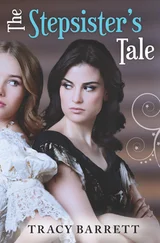Tracy O'Neill - The Hopeful
Здесь есть возможность читать онлайн «Tracy O'Neill - The Hopeful» весь текст электронной книги совершенно бесплатно (целиком полную версию без сокращений). В некоторых случаях можно слушать аудио, скачать через торрент в формате fb2 и присутствует краткое содержание. Год выпуска: 2015, Издательство: Ig Publishing, Жанр: Современная проза, на английском языке. Описание произведения, (предисловие) а так же отзывы посетителей доступны на портале библиотеки ЛибКат.
- Название:The Hopeful
- Автор:
- Издательство:Ig Publishing
- Жанр:
- Год:2015
- ISBN:нет данных
- Рейтинг книги:5 / 5. Голосов: 1
-
Избранное:Добавить в избранное
- Отзывы:
-
Ваша оценка:
- 100
- 1
- 2
- 3
- 4
- 5
The Hopeful: краткое содержание, описание и аннотация
Предлагаем к чтению аннотацию, описание, краткое содержание или предисловие (зависит от того, что написал сам автор книги «The Hopeful»). Если вы не нашли необходимую информацию о книге — напишите в комментариях, мы постараемся отыскать её.
The Hopeful — читать онлайн бесплатно полную книгу (весь текст) целиком
Ниже представлен текст книги, разбитый по страницам. Система сохранения места последней прочитанной страницы, позволяет с удобством читать онлайн бесплатно книгу «The Hopeful», без необходимости каждый раз заново искать на чём Вы остановились. Поставьте закладку, и сможете в любой момент перейти на страницу, на которой закончили чтение.
Интервал:
Закладка:
Did you not feel that something had been sacrificed in the argument?
Some hours I suppose.
And anything else?
Well after we fought, I threw up, so I suppose I sacrificed too an upper.
You know, Ali, feeling hurt doesn’t mean you’re a victim, and pretending you’re not hurt doesn’t diminish the feeling.
I look at the doctor, this un-dictionary, telling me what isn’t meant. Feeling hurt doesn’t mean you’re a victim, but isn’t feeling hurt being a victim of pain? She wants me to identify a feeling. Her profession is predicated on the belief that identifying a feeling organizes it, as though clarity of emotion cripples the emotion itself.
Why don’t we compromise? I say. I was furious. Even now, when my plan has so gloriously failed, I get angry thinking that he cost me that pill. I am not someone who forgets terrible things. Every time I circle back on some awful thought, it gains another rung until the trunk of this terrible memory tree is so big, its boughs so bifurcated with the angry flush of leaves, that everything else is overshadowed.
Did you ever worry that the amphetamines were affecting your mood?
Drugs can be deceptive, but I knew the truth: that the only way I’d ever feel happy again naturally was to return to the skating rink.
Your mother, of course, knew that you wanted money for something. The school raised suspicions about potential substance abuse. You’d borrowed money from your cousin. And it seems, too, that you’d lost quite a bit of weight. You must have been afraid.
I wasn’t afraid.
None of these factors made you afraid at all? She doesn’t believe me. And why should she? Why should she believe I’m being honest this time when I’ve lied to so many others?
Being bored, regular, directionless — that’s scary. But being on the brink? Not at all. I really felt like I could do anything, at least when I didn’t look too closely at reality. I thought I was eight pounds away from training again. Besides, I suffered empirical logic. I thought I’d gotten away with so much, why wouldn’t I get away with more? I thought we could all make it through scot-free, no one knowing how I got so good again. How wrong this was.
One of the many effects of amphetamines is a feeling of empowerment.
How sweet of the doctor to use that word empowerment. She knows, I suppose, the flood of embarrassment that “invincibility” would provoke with hindsight. And yet, it’s all so embarrassing now, because none of it worked.
I’m curious about something you mentioned in our last session, the doctor says. You said that you were “back.” Who were you, then, before you returned?
I know there is more to me than one: there’s the part of me that’s weak. There’s the part of me that fails. In short, there’s the part of me that thinks.
But did you ever think that the thinking part of yourself was admirable?
Sometimes I was arrogant. Sometimes I believed I thought better than everyone else. I have to be careful what I say to her. Now, here, an impatient patient who doesn’t want to think about her own thinking, there’s no room for arrogance. The escape route is narrow, a claustrophobic corridor through dialogue. I have to prove I’m better but that I don’t still believe I could be the best.
And what of the person you were who wasn’t a skater?
I was sometimes that person, which is one way of saying that sometimes I didn’t want to be me.
Yet there were parts of that person, too, it seems, that you enjoyed, like the part involved in thinking. It seems to me that sometimes you enjoy the games of argumentation.
Well maybe I just like to win. I crumple the candy wrapper and with a quick flick of the wrist get it whirring towards the waste basket. It bounces off the edge onto the floor.
You like to win but not to think itself? asks the doctor.
I like making plans, strategizing. I liked the thrill of the criminal mind.
It was a game to you.
Games, doctor, are simply a way to enact the strategies of real life without the fear of consequences. Thinking, therefore, was not a game for me. We both know the repercussions originated in thought. That’s why I needed the amphetamines — to undo what thinking had done. To surrender to the intelligence of the body. But of course that could never work, and I ignored every sign that I’d fail. I forgot that the first thing they teach you in figure skating is how to fall, because in every leap lies the inchoate fall.
You know, I asked you before if you felt hurt. Then I asked if you were afraid. You weren’t willing to admit either.
I did admit it. I admit I hurt myself.
But this is my point: you will only admit you hurt yourself. By only admitting that you hurt yourself, you allow yourself to maintain control over the pain. You’ve implied before that the origin of love is mysterious, yet you freely acknowledge love. Why not treat pain the same? Why don’t we say that you felt some hurt, and that the origin is irrelevant?
If I thought that way, I think, every day would be frightening. I’d think the pain might drown me and everything good in my life. The risk would always threaten the reward.
It’s too hard, doc, to let everything else be that much bigger than yourself.
You’re strong, Ali.
I was.
It was strong of you to accept Dorothy into your life — to talk to her, to agree to visit — even when she showed herself to be occasionally a small person.
I had to. I saw myself in her. Though I hadn’t thought of it much before, I’d been waiting my entire life for the security of seeing myself within a logical succession. When Dorothy surfaced, there I was; I was that small person, small of scope of interest, small in patience, small of heart. Though I say this matter of factly, the doctor stares at me with pity, baring her trembling eyeballs and squeezing her lips together. She doesn’t even blink as she clears her throat.
Was it not largehearted to permit Dorothy into your life after seventeen years of absence?
It wasn’t, Doc. Even then I knew the brevity of successful loves.
And was that what you had with Mark? A brief, successful love?
You sound like my mother, doc.
Which one?
You know, you’re funny sometimes. I like you, doc.
I like you too, Ali.
I might even miss you soon.
You might, she says. Her stoicism, that unreadable face, I could smack it.
Then again, I might not.

Christmas morning came, and I’d been awake all night. I watched the snow turn from bluish gray to white with the ascension of the sun. Squat thrusts, dusting, an article about demi-glazes; I was New York itself already, an island abuzz with never sleeping.
I studied techniques preserved on tape: the ruler straight alignment of Brian Boitano, the compass-right hip angle of Sasha Cohen, the statue Michelle Kwan made of herself as she bent her head to one foot and pointed the other to the sky in a resuscitation of the long lost move The Charlotte. After having her passport confiscated by the Nazis during World War II, the once famous Charlotte Oelschlagel had been forgotten, until Michelle Kwan began performing her signature move. It was all so clear as I watched the tape: homes and passports could be taken, but the victory of conquering mediocrity could not.
And then it was the hours of normal people. Purchases changed hands. A pair of socks for a pair of slippers. A blender for an ashtray. Just what I wanted! How did you know? You shouldn’t have! No really, you shouldn’t have — did you find out the return policy? My father gave me a ring too big for my finger which he’d gotten during his studies at the University of Washington. It looked like a big metal stamp. “Alis volat propiis,” it said on top, and in the inner curve was etched, “She flies with her own wings.”
Читать дальшеИнтервал:
Закладка:
Похожие книги на «The Hopeful»
Представляем Вашему вниманию похожие книги на «The Hopeful» списком для выбора. Мы отобрали схожую по названию и смыслу литературу в надежде предоставить читателям больше вариантов отыскать новые, интересные, ещё непрочитанные произведения.
Обсуждение, отзывы о книге «The Hopeful» и просто собственные мнения читателей. Оставьте ваши комментарии, напишите, что Вы думаете о произведении, его смысле или главных героях. Укажите что конкретно понравилось, а что нет, и почему Вы так считаете.
